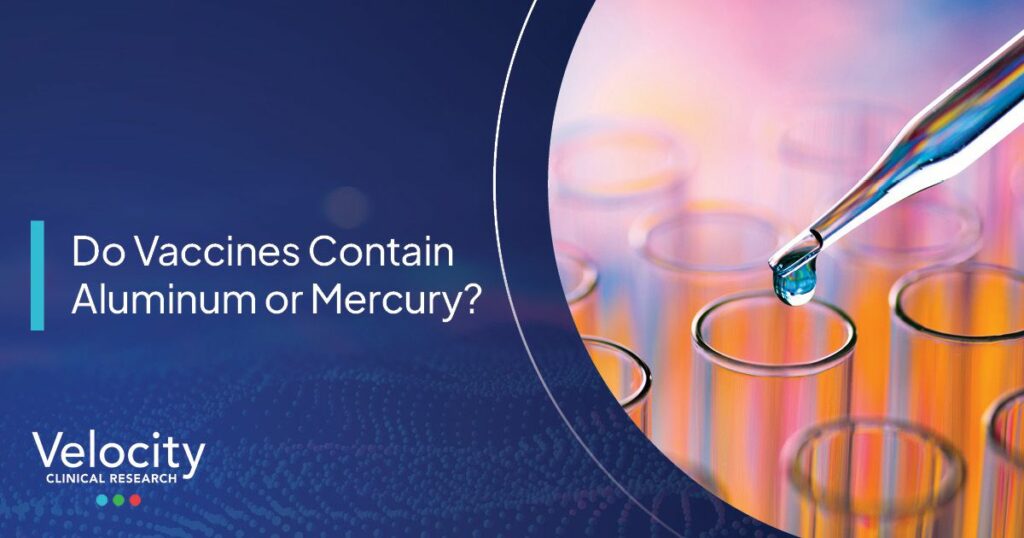Vaccine clinical trials are in the spotlight. Endless worldwide media coverage of the COVID-19 pandemic and groundbreaking vaccine research have also reignited the public’s interest — and intense debate — about vaccine ingredients. One common question is, “Why do some vaccines contain aluminum or mercury?”
The Role of Aluminum in Vaccines
Aluminum is an adjuvant ingredient in vaccines. In vaccines, adjuvants are used to stimulate a stronger immune response. Most vaccines are intended to work by exposing you to a small, safe amount of weakened, dead, inactive, or biosynthetic bacteria or viruses. This prompts your immune system to recognize the pathogen and/or defend you from certain diseases. Adjuvant ingredients like aluminum help provoke an immune response strong enough to protect you from a disease next time you’re exposed to it.
Are Adjuvants Safe?
Adjuvants, like aluminum, have been developed to target specific components of the body’s immune response, so that protection against disease is stronger and lasts longer. All vaccines are tested for safety and effectiveness, and must be approved by the U.S. Food and Drug Administration (FDA) before they can be licensed for sale and use in the U.S.
Vaccines containing adjuvants may cause more local side effects than vaccines without adjuvants. Common reactions are redness, swelling, and pain at the injection site. Other reactions include fever, chills, and body aches. Minor side effects can actually be a sign that your immune system is responding well to a vaccine.
The Role of Mercury in Vaccines
Mercury is found in a compound called thimerosal, which is used in some vaccines as a preservative. Thimerosal can help prevent dangerous contamination from bacterial and fungal growth.
Some vaccines come in multi-dose vials. Each time a new needle is put into a vial, some microbes may get into the vial and contaminate the vaccine. Thimerosal helps prevent growth of microbes in these situations. Sometimes, thimerosal is used during the vaccine manufacturing process and is removed later in the process so that only small amounts remain in the actual vaccination.
Is Thimerosal Safe? Can it Cause Autism in Children?
Scientists have studied the use of thimerosal in vaccines through decades. At low doses contained in vaccines, no evidence has ever shown that thimerosal causes harm in adults or children.
Thimerosal has been removed from all childhood vaccines in the U.S. (except some flu vaccines), but the number of children diagnosed with autism has not decreased. Scientific studies have also not shown correlation between thimerosal in vaccines and autism in children.
Childhood vaccines that contained thimerosal as a preservative are now manufactured into single-dose vials that do not need a preservative. Flu vaccines that do not contain thimerosal can be requested.
Thimerosal does not typically cause side effects, but some people who receive a vaccine containing the ingredient may have mild side effects, such as redness and swelling at the injection site.
Further Reading
From mercury and aluminum, to microchips and alien DNA, the rise of COVID-19 has brought more public interest — and speculation — to vaccine development than ever before.
If you’re interested in the vaccine development process, the Centers for Disease Control and Prevention (CDC) provides a wealth of information, including details about each FDA-approved vaccine.
To learn more about the types of vaccines, read, “What’s the Difference Between Active, Inactive, and Other Types of Vaccines?” As always, we’re here to talk if you want to know more about the clinical research process and vaccine clinical trials near you.

